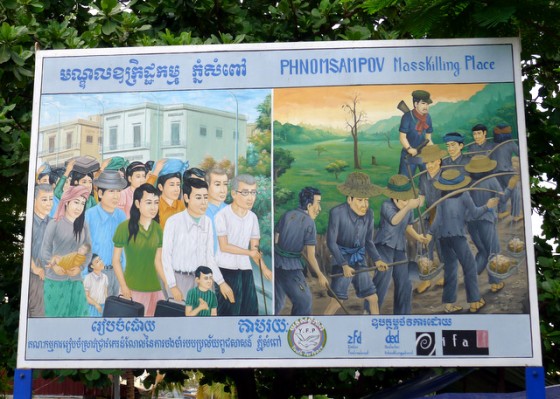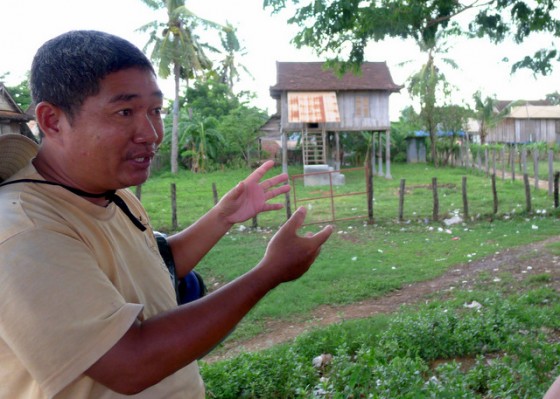When I was ten years old, my time was occupied playing with my Star Wars action figures in the yard, setting up jumps for my banana-seat bike and saving my weekly allowance for summer camping trips to the woods of Wisconsin.
Yesterday I met Tin, a Cambodian living in Battambang and a tuk-tuk driver for tourists. In 1975 he was orphaned and marched into a forced labor camp for children where he toiled for four years. His memories as a ten-year-old suffering under the Khmer Rouge contrast profoundly with my years in green, growing Iowa buoyed by comfort, care and stability.
Since I met Tin yesterday, I have been haunted by the profound difference of our respective childhoods, living not just on opposite ends of the globe but a universe apart. Here is his story.
Tin is just about my age, born in Phenm Penh in the mid-1960’s. In 1975 the capital city fell to Khmer Rouge communist forces after an arduous and bloody civil war. The next day the Khmer Rouge began evacuating all residents from Phenm Penh and the other cities to the country to work in forced-labor camps.
For weeks the roads were filled with the mass exodus from the cities: Women walked for days carrying crying infants and running out of food. Hospitals were emptied, the sick and infirm were forced onto the roads, some holding IV’s and being pushed in wheelchairs. Many elderly struggled and died in the forced march to the countryside. Year Zero had begun, ushering in a brutal new era of radical restructuring of Cambodian society into a peasant-dominated agrarian cooperative.
The Khmer Rouge rejected the rich cultural past of Cambodia as a suitable model for the new society. Schools were shuttered, money officially abandoned replaced by a “barter” system, libraries burned, Buddhist temples shelled and ancient monument sites scavenged for works projects. The borders were sealed, no one was allowed in or out. International aid assistance was denied. Anyone with an education, contacts with the former government or links to other countries, who spoke a foreign language, wore glasses, or lived in a city was considered “bourgeois” was taken away and likely killed.
The others were forced into labor camps structured by age and gender; families were torn apart with children and parents in opposite parts of the country. Conditions everywhere were appalling and treatment was brutal. Children were often questioned separately by the Khmer Rouge; they knew the young were less likely to cover up important family details. Anyone accused of insubordination or suspected of moral weakness was simply exterminated; there was no justice or rule of law.
Almost 2 million people were killed by the Khmer Rouge’s genocidal reign of terror. In fewer than four years, nearly one out of every four Cambodians died.

Continue reading “Tin’s Cambodian Nightmare: Battambang, the Khmer Rouge and a Lost Childhood”
